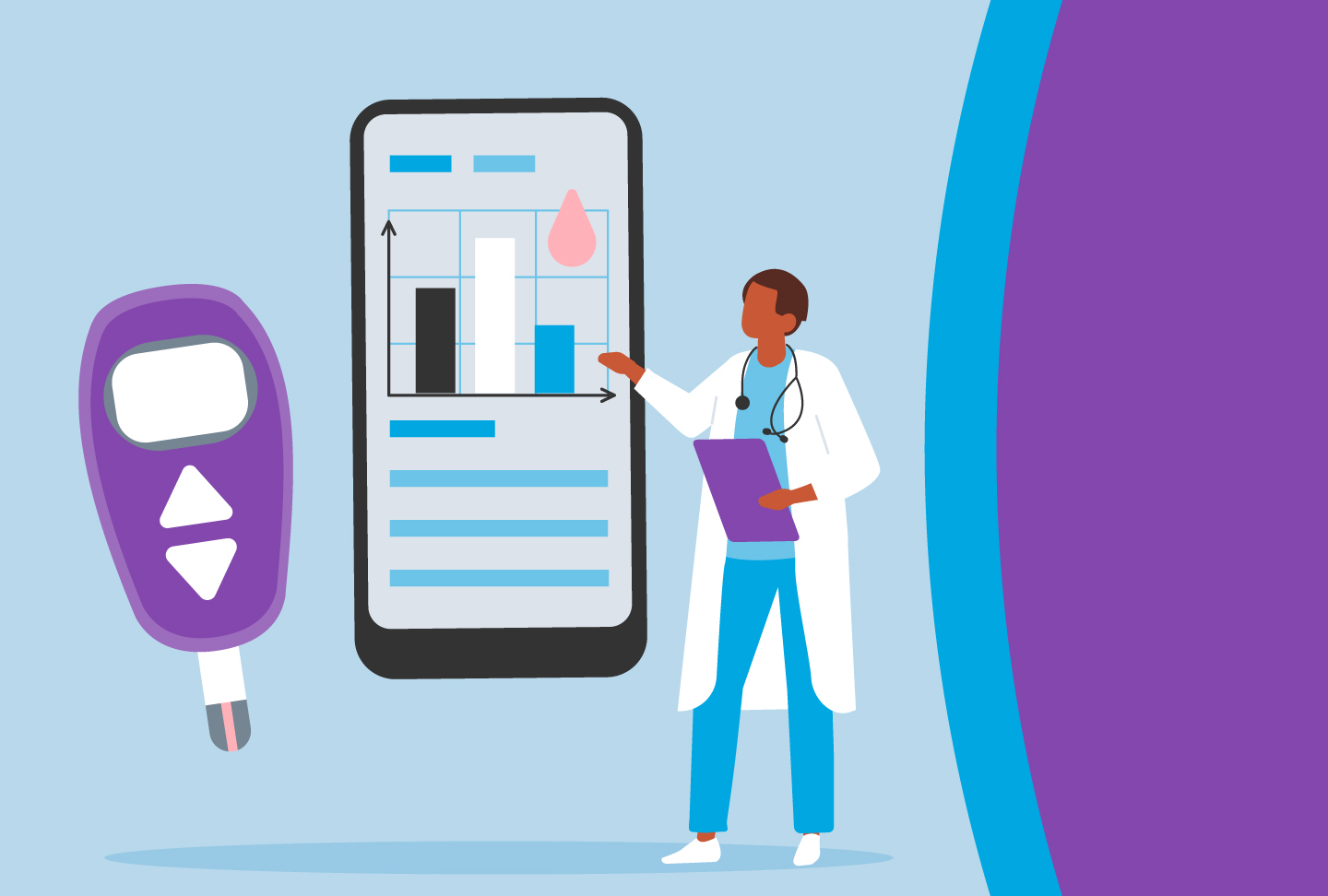According to the Centers for Disease Control and Prevention (CDC), about 1 in 10 Americans have diabetes. Of that group, 90 to 95% have type 2 diabetes. Because this condition often develops in people over 45, getting screened and getting the best treatment to live your healthiest life is essential.
"Diabetes is a chronic and complex condition, and treatments are continuously changing," said Dr. Georgia Forrest, Wellstar primary care physician. "Teaming up with a primary care provider who personalizes your care plan to you and everything that makes you unique should be a top priority."
Whether you currently have type 2 diabetes, a family history of the disease or feel concerned about your overall well-being, you can take proactive steps to manage your health. Here are some key facts to help you better understand the relationship between diabetes and good health.
1. Undiagnosed diabetes costs you money & health
Not knowing you have diabetes carries high medical costs. Undiagnosed diabetes can increase your risk for death and other medical issues.
Diabetes was the eighth leading cause of death in 2021, the most recent data reported by the U.S. Preventive Services Task Force. And according to the American Diabetes Association, having diabetes doubles your risk for heart disease and stroke—heart disease is the number one killer in the U.S.
2. A diagnosis and personalized treatment can save your life
Knowing you have diabetes and then working to manage your blood sugar, blood pressure and cholesterol effectively can lower your risk of death and help you live a better quality of life.
3. Getting screened for diabetes is easy
The U.S. Preventive Services Task Force now recommends getting screened with a simple blood test at the age of 35 for people with no symptoms but who are overweight or obese. Even if you have no signs or family history of diabetes, it can lurk in your numbers. Getting screened can help you catch it early and even prevent it altogether.
Consider getting screened for diabetes if you:
- Are obese or overweight
- Are physically inactive
- Have a parent or full sibling with diabetes
- Are an African American, Latino, Native American, Asian American or Pacific Islander
- Have a history of cardiovascular disease
- Have hypertension
- Have blood work that shows an HDL of less than 35 mg/dl or triglycerides greater than 250 mg/dl
- Have a diagnosis of polycystic ovarian syndrome
- Have other medical conditions that lead to insulin resistance
4. Some people have pre-diabetes
If your screening shows that you have pre-diabetes, your blood sugar levels run higher than average but aren't within the range of type 2 diabetes. However, you have an increased risk of getting type 2 diabetes.
Identifying that diabetes is around the corner can help you stop it before it starts.
5. Diabetes treatment plans should be unique
When crafting a plan to address diabetes, the conversation must be about more than the numbers.
"Additional diseases or conditions you may be experiencing in conjunction with your diabetes should also become part of your individualized health plan," Dr. Forrest said.
A complete medical history helps your healthcare provider understand how other medications and treatments may interact with your symptoms and treatments related to type 2 diabetes.
6. Lifestyle modifications can make a big impact on diabetes
Lifestyle modifications may involve slight changes to your weight, the amount of exercise you get, your diet and even your sleeping patterns.
Changes don't have to be major. For instance, your doctor may suggest you lose around 10 pounds and exercise for 30 minutes five days a week.
Our primary care providers work with patients one-on-one but can also refer patients with pre-diabetes and diabetes to Wellstar Diabetes Services to help prevent the onset or manage the effects of diabetes.
7. S.M.A.R.T. diabetes treatment plans
According to Dr. Forrest, your overall plan should include "specific, measurable, achievable, relevant and timely (S.M.A.R.T.) goals and involve shared decision-making between you and your care provider. There should be plenty of follow-ups to keep the conversation fluid and open to modification."
8. Know your numbers — and acronyms (A1C, CGM, TIR)
Should your screening lead to a type 2 diabetes diagnosis, conversations with your health providers will focus on several acronyms and numbers.
"Know your ABCD’s of diabetes," said Dr. Forrest. "Your A1C, blood pressure, cholesterol and the medications you are taking. Knowing these facts about your health will be key to your success."
• A = Hemoglobin A1C goal is <7
• B = Blood pressure goal is <130/80
• C = Cholesterol goal is to keep bad cholesterol <100
• D = Drugs
Keeping the A1C low and within an optimal range will help prevent complications like eye damage, blindness, kidney failure and nerve damage.
A mainstay for type 2 diabetes management centers around constant glucose level monitoring. Continuous glucose monitoring (CGM) provides readings every few minutes via a sensor inserted just below your skin. Monitoring glucose is a common way to help regulate insulin in your body, giving you the readings you need to self-adjust with insulin when appropriate. Average glucose levels should be 100 mg/dl or lower though they can increase if you've just eaten.
New developments introduced the importance of tracking Time in Range (TIR). Along with monitoring your glucose levels, TIR may impact your customized plan for maintenance. According to Dr. Forrest, the goal for TIR is 70% or more.
9. Receive individualized diabetes care at Wellstar
For diabetes management, a personalized, proactive approach can make all the difference. Wellstar primary care providers are here to partner with you to help prevent or manage diabetes, heart disease and many other conditions.
"A true patient-centered approach for managing diabetes is the key to the future of this disease," Dr. Forrest said. "Get screened and speak up when it comes to your care. Opportunities for personalized and individualized medicine should be a part of your treatment plan as you move forward."
Find a primary care provider near you.




